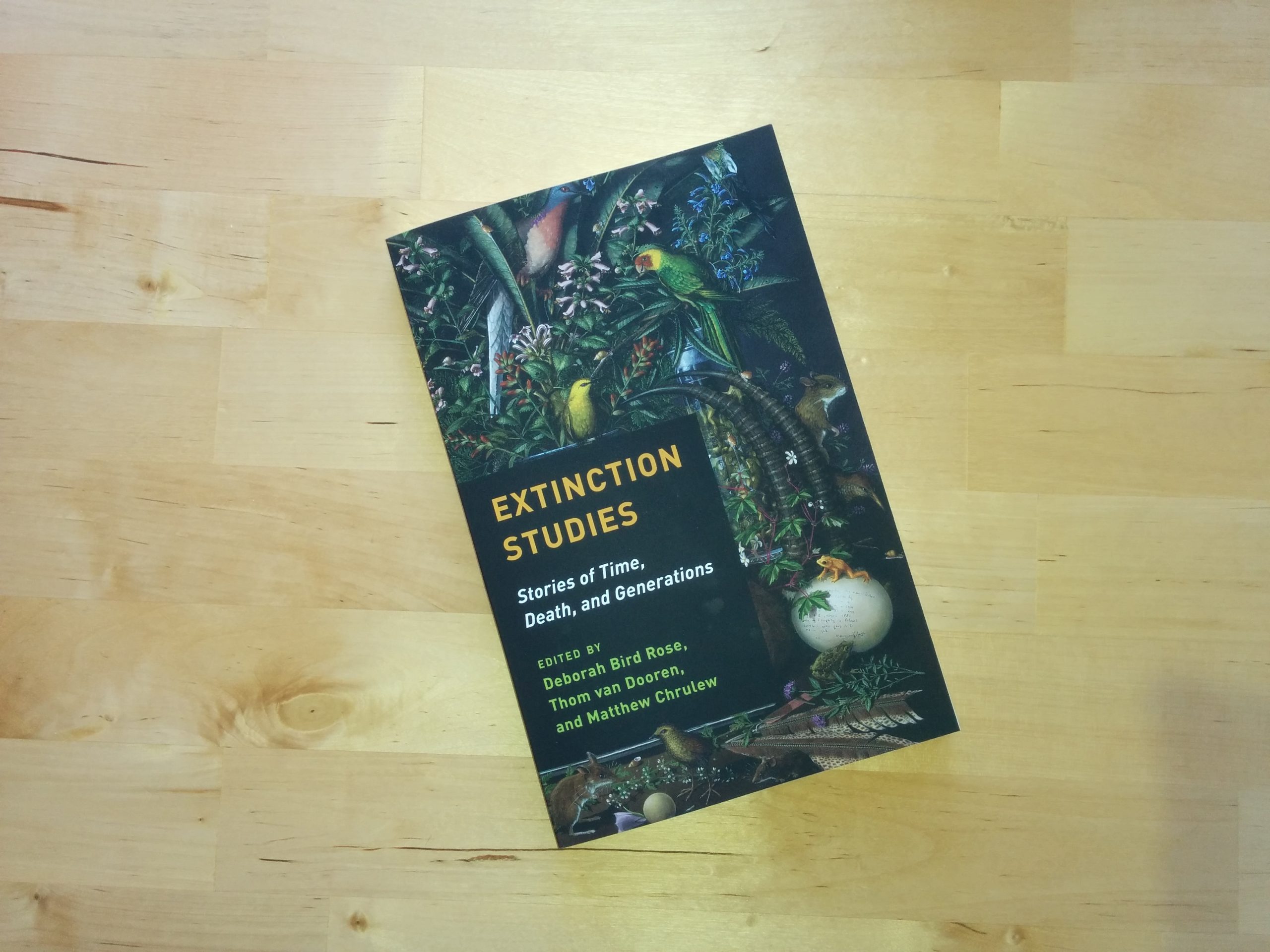New Book : Extinction Studies: Stories of Time, Death, and Generations
I’m delighted to announce that our new book is now out: Extinction Studies: Stories of Time, Death, and Generations. This collection was co-edited by Deborah Bird Rose, Matthew Chrulew and myself, and published by Columbia University Press.
 There’s more information, including the table of contents for the book, on the edited collections page of my website.
There’s more information, including the table of contents for the book, on the edited collections page of my website.
Extinction Studies focuses on the entangled ecological and social dimensions of extinction, exploring the ways in which extinction catastrophically interrupts life-giving processes of time, death, and generations. The volume opens up important philosophical questions about our place in, and obligations to, a more-than-human world. Drawing on fieldwork, philosophy, literature, history, and a range of other perspectives, each of the chapters in this book tells a unique extinction story that explores what extinction is, what it means, why it matters—and to whom.
Endorsements
Extinction Studies collects haunting and haunted multivoiced stories that echo together in a vibrant plea for an ethic of care, lucidity, and obstinate, stammering hope. We need such stories to make us feel and think with the unraveling of a world we inherit and share together with innumerable entangled forms and ways of life. We need them also to repopulate our devastated imaginations and to help us escape the twin easy temptations of nihilist despair and blind confidence.
~ Isabelle Stengers, author of Cosmopolitics
This extraordinary collection addresses one of the most sobering aspects of the current environmental crisis. The contributing scholars use narrative as the vehicle for their historical, ethnographic, zoological, meditative, and poetic insights. The result is both personal and scholarly, both illuminating and a pleasure to read.
~ Harriet Ritvo, Arthur J. Conner Professor of History, Massachusetts Institute of Technology
Extinction Studies makes an important contribution to human-animal studies and the environmental humanities as the volume explores what extinctions and recoveries of endangered animal species mean in different cultural contexts. These perceptive and wide-ranging essays focus on the narrative and philosophical frameworks that turn the ecological reduction of bioabundance and biodiversity into sources of reflection about human and more-than-human ways of life as they unfold across generations and evolutionary ages. These analyses and meditations acknowledge both that animals can never be fully assimilated to human understanding, and that human stories play a crucial role in shaping the bonds with animals that take multispecies communities into a future of danger, but also of hope and exuberance.
~ Ursula K. Heise, Marcia H. Howard Chair in Literary Studies, University of California, Los Angeles
Human-caused extinction challenges our own survival—but also our compassion and our ability to tell stories adequate to shifting configurations of ‘us’ and ‘them.’ This volume gathers seven fine storytellers who show us what it means to lose or save another animal species in an era of rapid extinctions. These are tales of passion, time, conflict, learning, slaughter, imprisonment, and prayer. Drawing upon their common membership in an interdisciplinary and international working group on extinction studies, the authors show the potential of the environmental humanities to address one of the major crises of our moment in history.
~ Anna Tsing, University of California, Santa Cruz
The studies contained in this volume cross species and kingdom boundaries, and are full of hope just as much as grief and mourning. In bearing witness to the lives of species that are functionally and/or already extinct, the authors present multiple modes of response and responsibility for those of us who remain.
~ Brett Buchanan, associate professor of philosophy and director of the School of the Environment at Laurentian University
Header art: “Gone” by Isabella Kirkland.
